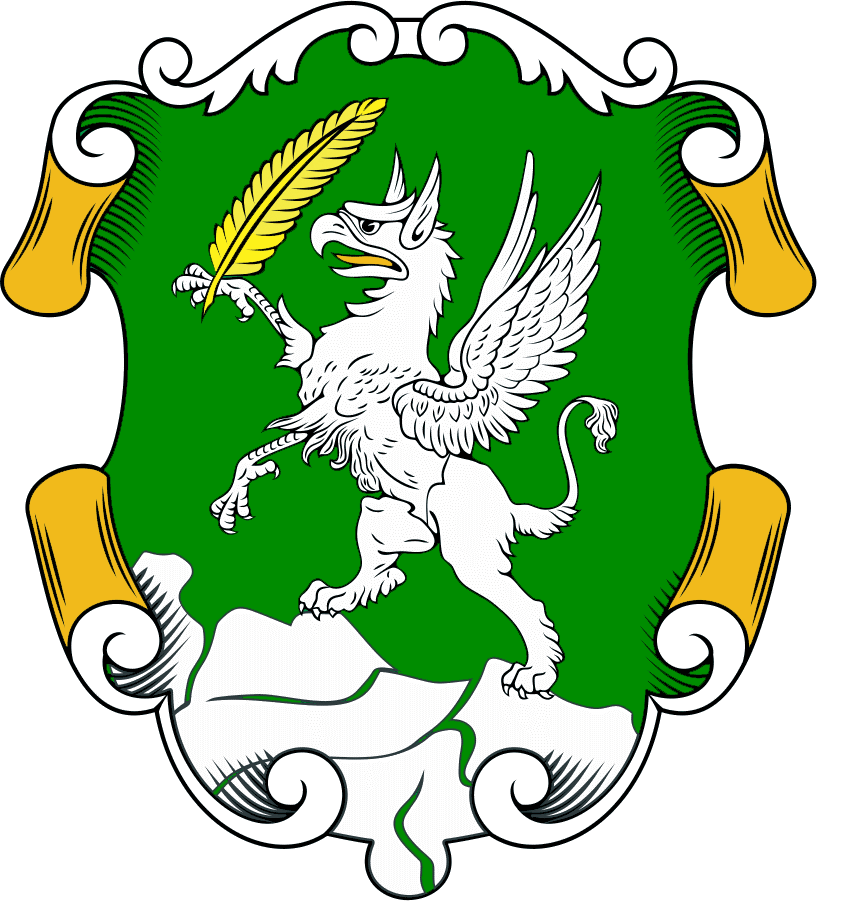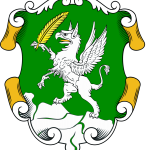Module: Sustainable Development of Living Heritage
 Our approach to Sustainable Development of Living Heritage, centered around heritage interpretation, is rooted in over a decade of experience working directly in the field with the ”Custom Martinki”. This Balkan tradition involves the exchange of handmade amulets on the 1st day of March mostly in Macedonia, Romania, Bulgaria, Moldavia and other regions and countries.
Our approach to Sustainable Development of Living Heritage, centered around heritage interpretation, is rooted in over a decade of experience working directly in the field with the ”Custom Martinki”. This Balkan tradition involves the exchange of handmade amulets on the 1st day of March mostly in Macedonia, Romania, Bulgaria, Moldavia and other regions and countries.
In 2017, UNESCO officially recognized the ‘Custom Martinki’ by inscribing it on the Representative List of the Intangible Cultural Heritage of Humanity. This designation established HAEMUS as a legal guardian of this cherished tradition. Since 2013, we have curated the traditional event “Grandma March Day” a UNESCO-recognized program dedicated to nurturing, educating, and promoting the ‘Martinki Custom’. Our efforts to preserve this cultural heritage were honored with the prestigious “Best European Heritage Story in 2020” award by the Council of Europe and the European Commission.
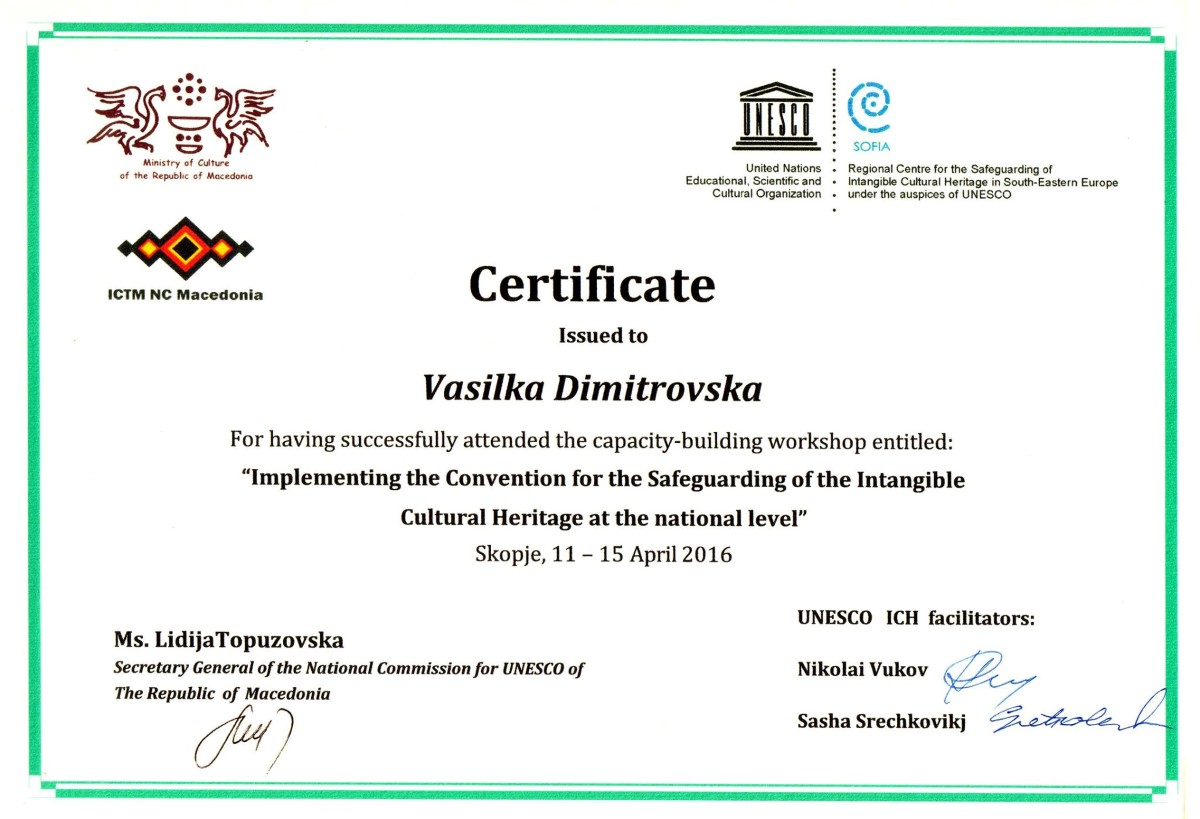
Our project ‘Grandma March Day’ is a very successful example that shows how we can manage, visualize, interpret, promote and save the world intangible heritage.
Living heritage not only adds significance to our lives but also reinforces resilience and contributes to overall well-being. The close association between intangible cultural heritage and sustainable development is evident. The international community, in its commitment to safeguarding living heritage, adopted the Convention for the Safeguarding of the Intangible Cultural Heritage in 2003. Additionally, with the adoption of the 2030 Agenda for Sustainable Development, ambitious goals were set. This module facilitates the understanding of the intricate connections between these two crucial aspects.
In this module, we will develop a deeper meaning of intangible cultural heritage and its close connection with sustainable development. We will explore global examples and insights from various communities to enhance your knowledge.

The one full working day module includes:
- Types of heritage and how an interpretive approach enhances them all.
- Understanding Intangible Cultural Heritage and its deeper meaning.
- Exploring Communities and Their Intangible Cultural Heritage.
- How to protect intangible cultural heritage.
- How to create a successful UNESCO application for Intangible Cultural Heritage.
- Intersection of Intangible Cultural Heritage and Gender.
- Leveraging Intangible Cultural Heritage for Sustainable Livelihoods and Inclusive Social Development.
- Using Intangible Cultural Heritage for resilience, environmental sustainability, and peacebuilding.
- Individual and group exercises, as well as teamwork on interpretative proposals for Intangible Cultural Heritage.
- Stories from our tradition in the service of tourism, tourism in the service of intangible heritage.
- Application of Storytelling in Tourism with the emphasis on Intangible cultural heritage.
- Heritage Interpretation of intangible cultural heritage and visitor engagement.
- Interpretation thought Gamification of Intangible Cultural
The module ‘Sustainable Development of Living Heritage‘ is developed and led by Vasilka Dimitrovska.
About the trainer
Vasilka Dimitrovska is a renowned expert in heritage interpretation, with a Master of Science in Archaeology. As the Director of HAEMUS and a certified interpretive trainer recognized by Interpret Europe and UNESCO she has dedicated her career to transforming how we engage with cultural, natural and intangible heritage.

A storyteller and educator, Vasilka has been an associate of the National Geographic Society since 2011 and played a key role in safeguarding the UNESCO-listed “Martinki” Custom. Over the past few years, she has held a steadfast role as the permanent heritage consultant for Pivara Skopje AD (Coca-Cola HBC and Heineken N.V.).
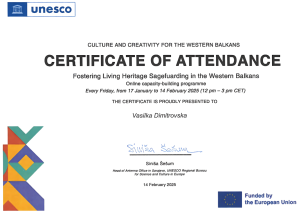 She has published over 25 monographs, books, and manuals, as well as more than 50 scientific papers. With extensive experience organizing international conferences, exhibitions, and educational programs, Vasilka brings a unique blend of knowledge and passion to her training sessions. Her programs, such as “Grandma March Day”, “Young Explorer” and “Storytelling Skopje,” highlight her commitment to making heritage accessible and engaging for all audiences.
She has published over 25 monographs, books, and manuals, as well as more than 50 scientific papers. With extensive experience organizing international conferences, exhibitions, and educational programs, Vasilka brings a unique blend of knowledge and passion to her training sessions. Her programs, such as “Grandma March Day”, “Young Explorer” and “Storytelling Skopje,” highlight her commitment to making heritage accessible and engaging for all audiences.
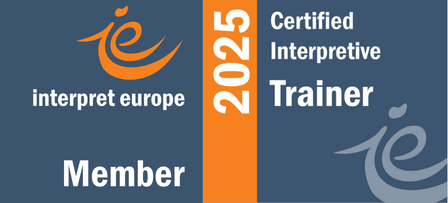 Through her hands-on training, Vasilka empowers professionals to master the art of heritage interpretation, enabling them to communicate the value of our cultural and natural treasures effectively. With a legacy of inspiring change and a vision for the future of cultural heritage, Vasilka continues to shape the next generation of heritage interpreters and leaders, leaving a lasting impact on the global community.
Through her hands-on training, Vasilka empowers professionals to master the art of heritage interpretation, enabling them to communicate the value of our cultural and natural treasures effectively. With a legacy of inspiring change and a vision for the future of cultural heritage, Vasilka continues to shape the next generation of heritage interpreters and leaders, leaving a lasting impact on the global community.
